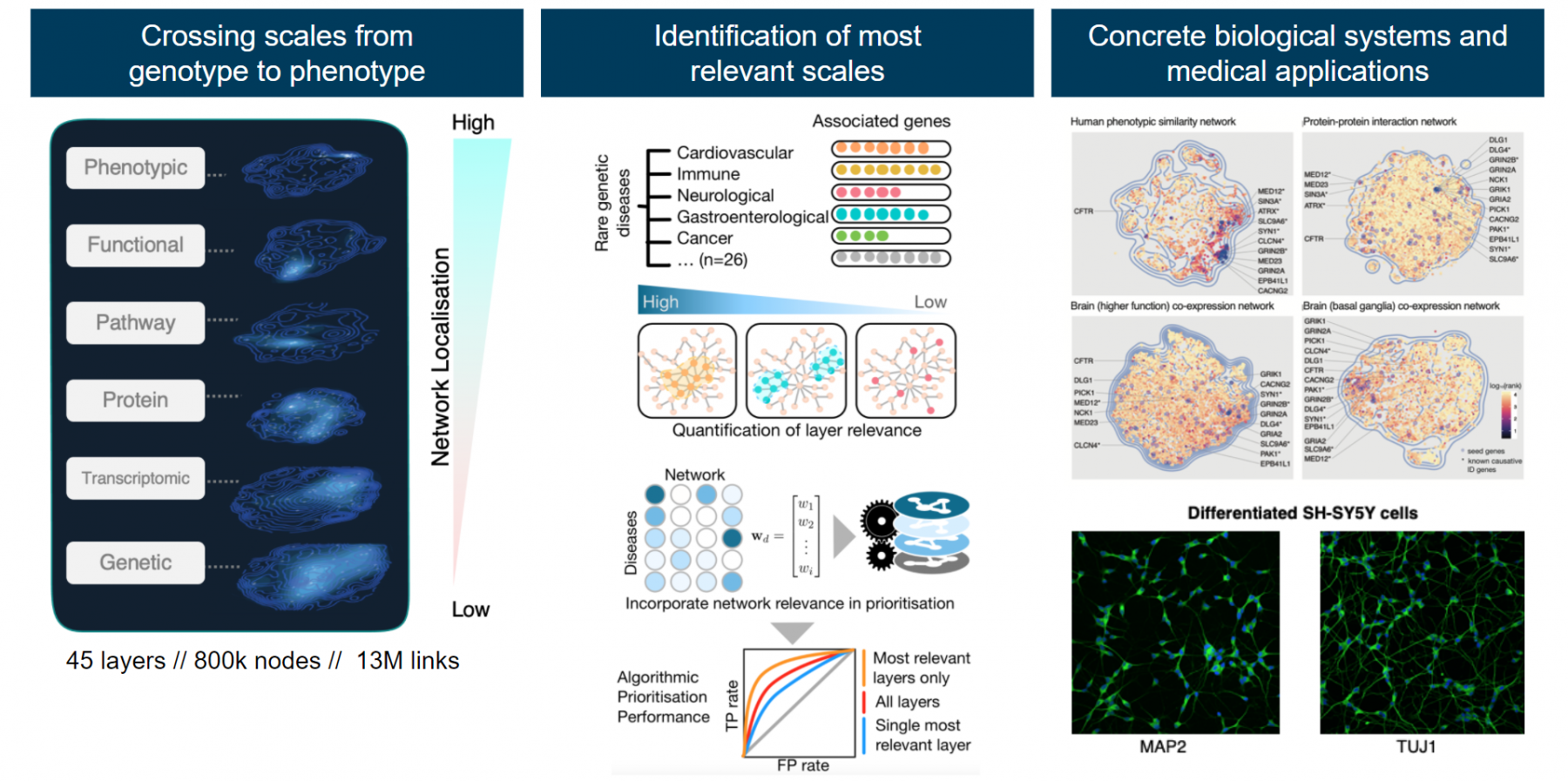Multi-scale organization of biological systems
Biological systems are strictly orchestrated through communications and interactions across the hierarchy of biological scales. With the vast amount of high-throughput biological data that have become increasingly available, these multi-scale interactions can be universally observed, from genetic and epigenetic lesions, sub- and intercellular interactions among proteins and metabolites, to physiological crosstalks on tissues and organs level. Furthermore, external influences such as social and environmental interactions, which can in turn affect the very basic genetic and epigenetic processes have also been extensively studied. These different levels of biological organization, cascades of effects that lead to multitudes of phenotypic effects, and information flows across the hierarchy can be captured via a multi-scale network. The concept has been formulated and successfully applied in different fields from urban organization to epidemiology, which can be benefited in understanding the complexity of health and diseases.
